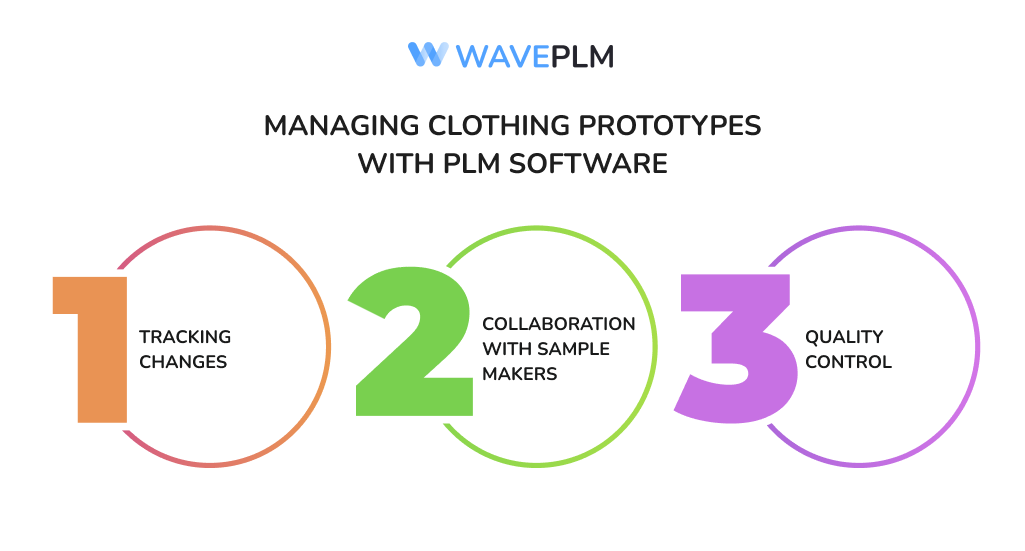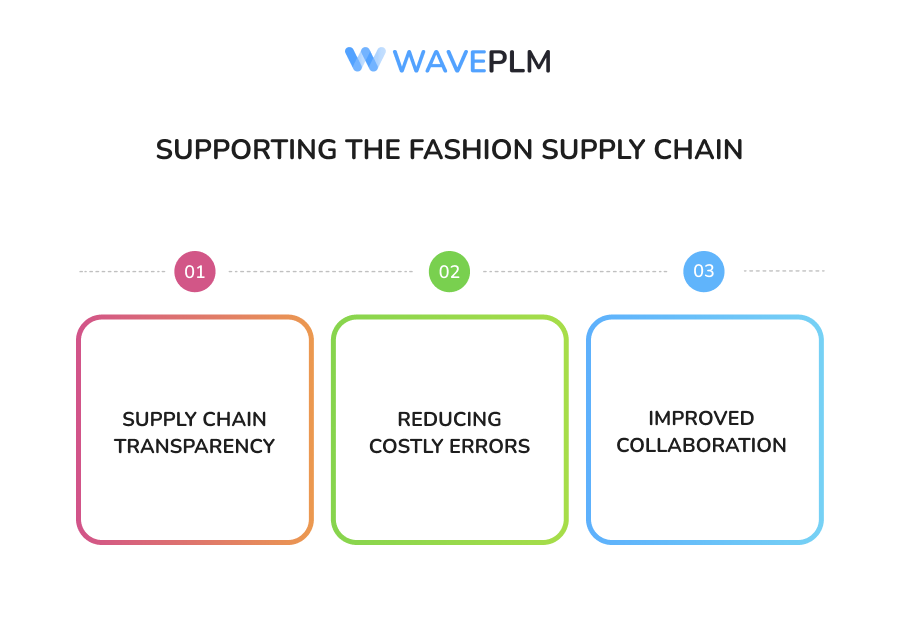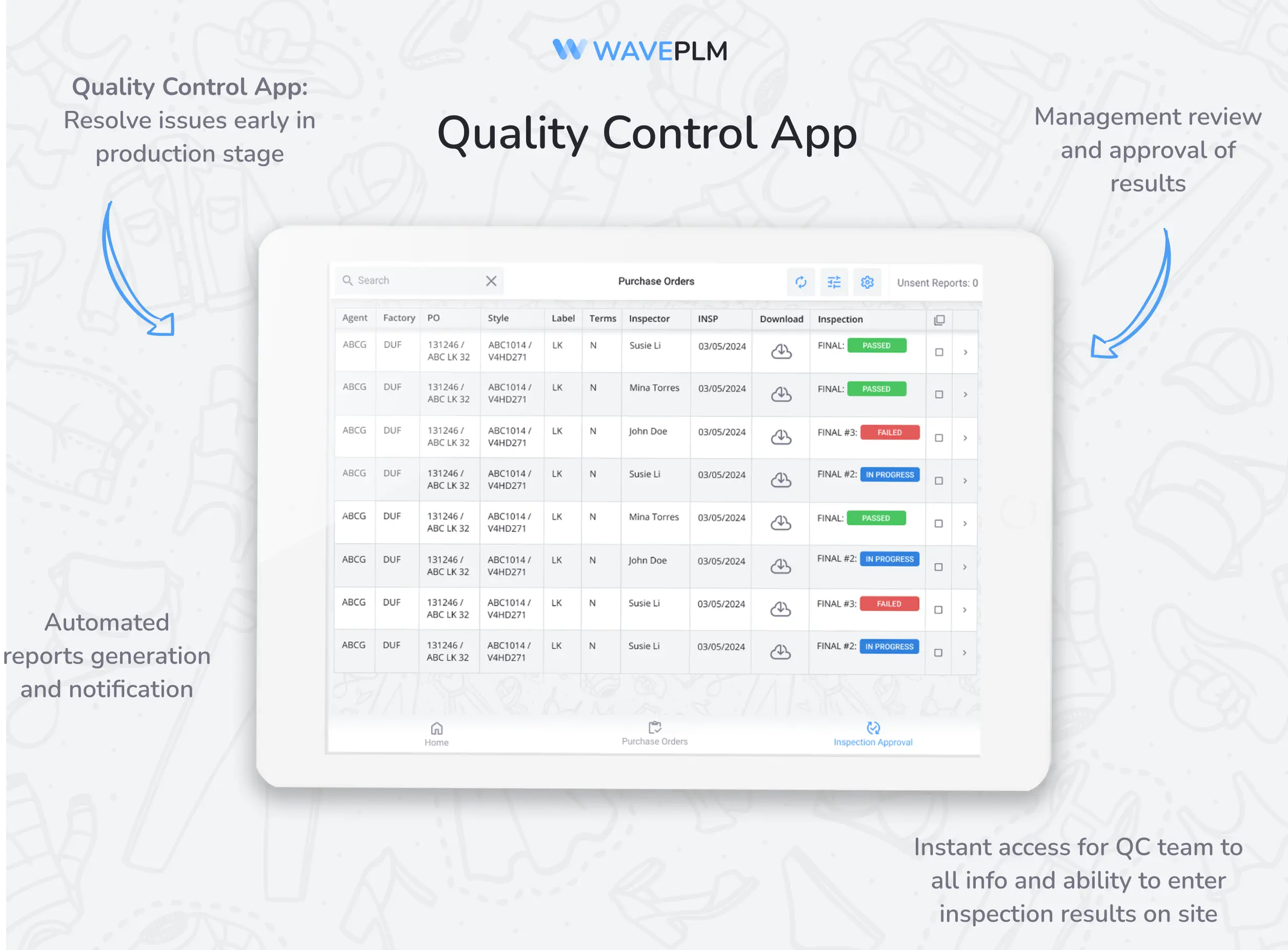
Bringing a clothing prototype to life is a complex journey. For fashion brands, it’s not just about crafting an idea but turning it into a market-ready product. This transition from prototype to production demands precision, collaboration, and efficiency. Here, PLM software plays a crucial role, in streamlining processes and ensuring fashion brands can scale effectively.
What is PLM Software?
PLM software, or Product Lifecycle Management software, helps manage every stage of a product’s life. From initial design to finished products, it serves as the backbone of apparel management. In the fashion industry, PLM systems provide tools to track designs, manage tech packs, and oversee supply chain processes. For fashion designers and clothing manufacturers, this software ensures seamless transitions from concept to reality. It also empowers teams to handle complex projects with greater efficiency, reducing the time taken to bring products to market.
PLM software’s integration capabilities further enhance its utility. By connecting design, production, and supply chain systems, it creates a unified platform that fosters collaboration. For brands striving to remain competitive, such tools are indispensable.
Managing Clothing Prototypes with PLM Software
Prototypes form the foundation of any fashion product. These early samples embody the brand’s vision and set quality standards for production. PLM software simplifies apparel prototype management by centralizing all design and production data.
- Tracking Changes: Prototypes often go through multiple iterations. With PLM, every adjustment is recorded, ensuring informed decisions at every stage. Teams can compare versions, identify successful elements, and refine designs effectively.
- Collaboration with Sample Makers: PLM systems enable real-time collaboration between designers and sample makers. This eliminates communication gaps and speeds up the design process. Streamlined communication ensures faster turnaround times and fewer errors.
- Quality Control: PLM tools enforce strict quality standards. By flagging inconsistencies early, brands avoid costly errors during production. Quality metrics can be customized, ensuring alignment with brand values and market demands.

Streamlining the Design Process
The design process is the heart of fashion product development. Fashion designers rely on PLM software to streamline processes and bring their visions to life efficiently. These tools ensure that the creative phase remains organized and productive.
- Tech Packs: PLM systems manage tech packs, which contain essential details like measurements, materials, and construction methods. Accurate tech packs reduce errors and miscommunication, serving as a blueprint for the entire production team.
- Centralized Data: All design elements are stored in one place. This ensures every team member works with updated information, improving consistency and reducing duplication.
- Seamless Revisions: When changes occur, PLM software updates all related documentation automatically. This ensures smooth transitions from design to prototype. Multiple team members can collaborate on changes simultaneously, boosting efficiency.
Ensuring Seamless Transitions to Production
The leap from a clothing prototype to mass production is challenging. Apparel management software bridges this gap, helping brands scale their production processes. Transitioning efficiently is critical for meeting tight deadlines and maintaining market competitiveness.
- Optimizing Manufacturing Processes: PLM systems streamline processes by standardizing workflows. This reduces the time taken to move from prototypes to finished products. Clear workflows also minimize misunderstandings and redundancies.
- Production Planning: With PLM software, production planning becomes more efficient. Brands can manage timelines, allocate resources, and forecast production needs effectively. Predictive tools within PLM systems enable accurate resource allocation and better time management.
- Quality Control in Manufacturing: PLM ensures every product meets the brand’s quality standards. Monitoring every step, reduces defects and enhances customer satisfaction. Automated quality checks further reduce the risk of human error.
Supporting the Fashion Supply Chain
The fashion supply chain involves multiple stakeholders, from material suppliers to clothing manufacturers. PLM software optimizes supply chain processes, ensuring smooth production to marketing transitions. Effective supply chain management is essential for reducing costs and improving profitability.
- Supply Chain Transparency: PLM systems provide visibility into every stage of the supply chain. This helps identify bottlenecks and resolve issues promptly. Enhanced transparency fosters trust among stakeholders and improves coordination.
- Reducing Costly Errors: By tracking every detail, PLM software minimizes errors that can derail production schedules. Accurate data reduces waste and enhances operational efficiency.
- Improved Collaboration: PLM tools enhance collaboration among teams, ensuring everyone stays aligned on business processes. Teams can share updates, documents, and feedback in real time, improving decision-making.

Scaling Production with Confidence
Scaling from prototypes to full production requires precision and planning. PLM software equips fashion brands with the tools they need to manage production processes efficiently. Scaling confidently ensures brands can meet growing demand without compromising quality or timelines.
- Streamlined Workflows: PLM systems standardize workflows, making it easier to scale production without compromising quality. Organized workflows reduce errors and enhance productivity.
- Real-Time Updates: With real-time updates, teams can adapt to changes quickly, ensuring smooth operations. These updates improve responsiveness to unforeseen challenges, such as material shortages.
- Customer Satisfaction: By maintaining quality standards, brands can meet customer expectations consistently. High-quality products lead to better reviews, repeat purchases, and stronger brand loyalty.
Enhancing Quality Control and Standards
Quality control is a cornerstone of successful fashion product development. PLM software enforces quality standards at every stage, from initial designs to finished products. Effective quality management safeguards a brand’s reputation.
- Automated Quality Checks: Automated tools flag issues during the production process, ensuring only top-quality products reach the market. This reduces the need for costly rework.
- Maintaining Brand Standards: PLM systems ensure all prototypes and finished products align with the brand’s identity. Consistency in design and production reinforces customer trust.
- Reducing Waste: By identifying defects early, PLM software helps reduce waste and optimize resources. Sustainable practices contribute to cost savings and environmental responsibility.

Making Informed Decisions with PLM Software
Data-driven decisions are vital for scaling production and ensuring success in the fashion industry. PLM systems provide actionable insights, empowering brands to make smarter choices. Comprehensive data analysis drives continuous improvement and innovation.
- Analytics and Reporting: PLM tools generate detailed reports on production processes, helping brands identify areas for improvement. These insights lead to better resource utilization and cost efficiency.
- Forecasting Trends: With data on past and current projects, PLM software helps predict future trends and demand. This enables proactive planning and better market alignment.
- Optimizing Product Lines: Insights from PLM systems guide brands in refining their product lines for better market performance. Enhanced product offerings increase profitability and market share.
Conclusion
Scaling from prototype to production is no small feat. It requires precision, collaboration, and the right tools. PLM software supports every step of the journey, from managing clothing prototypes to streamlining production processes. By enhancing quality control, optimizing supply chain processes, and enabling informed decisions, PLM systems empower fashion brands to scale with confidence.
For the fashion industry, adopting PLM software is more than a technological upgrade. It’s a strategic move that transforms how brands design, produce, and deliver fashion products, ensuring long-term success in a competitive market. With the right PLM tools, brands can not only meet the demands of today but also prepare for the challenges of tomorrow. Embracing this technology is the key to unlocking new opportunities and achieving sustainable growth.





Leave a Reply